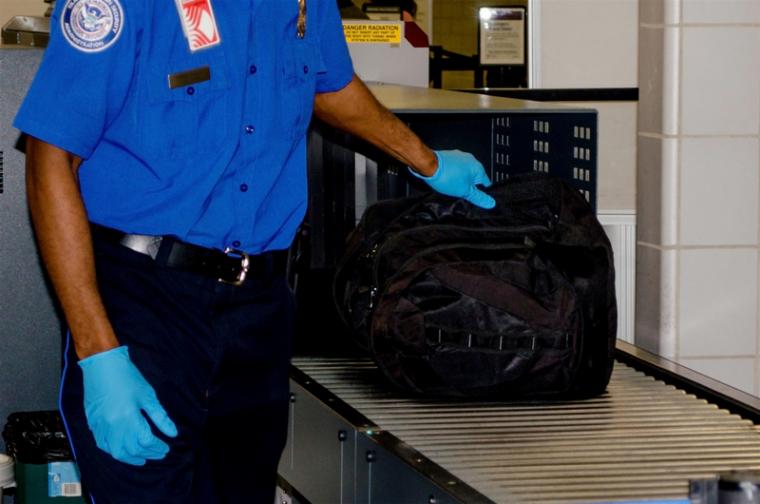
While cannabis has been legalized in many states, its adoption, both nationwide and worldwide, has been uneven. And since CBD products (used to relieve pain and stress) are gaining enormous popularity with athletes, it’s worth questioning whether, as air travel ramps back up, you can fly with edibles, oils, vapes and other substances.
All told, a total of 22 states (including Guam) currently list cannabis as a legal substance. However, there are varying regulations concerning its legality when traveling.
According to TSA, “marijuana and certain cannabis infused products, including some Cannabidiol (CBD) oil, remain illegal under federal law except for products that contain no more than 0.3 percent THC on a dry weight basis or that are approved by FDA.” (Explicit information can be found in the Agriculture Improvement Act of 2018).
 Note: Vape devices are held to a different standard.
Note: Vape devices are held to a different standard.
And while some states, (Oregon is one example, although there are others), are more lenient, TSA’s rules do not vary. Officers do not care whether you’re flying between two states with laws that allow for recreational use of marijuana, or whether you’re flying between two that don’t – or anything in between.
In fact, TSA officers are required to report any suspected violations of law to local, state or federal authorities – and it doesn’t matter where you’re going. TSA security officers do not search for marijuana or other illegal drugs, but if any illegal substance is discovered during security screening, TSA will refer the matter to a law enforcement officer.
Highline Fitness adds: “At the end of the day, it’s up to the TSA agent’s discretion whether or not they’ll inspect and allow the product…Of course, a TSA agent will not be able to immediately tell if a CBD product contains less than 0.3 percent THC. No on-site testing is done on the product.”
All of which means that a stop at TSA could add up to a delay, a missed flight or more extensive problems.
Some CBD companies suggest flyers bring a printed version of the ingredient list and independently tested analysis results, to prove that any product contains less than 0.3 percent THC. However, Highline notes, “for the most up-to-date information on traveling with CBD, it’s always best to double check the medical marijuana page on the TSA website or even give your specific airline a call to find out their rules around flying with CBD oil, CBD cream, CBD gummies, or any other form of CBD.”
The intersection of cannabis and sports stretches back several years. In 2018, a cannabis brand signed on a sponsor of an endurance sports event. Human Potential LLC, an event management company that hosts The Human Potential Running Series, announced that Colorado-based Elixinol was an official sponsor of their series of events. Human Potential sad at the time that it marked the very first ultra race or ultra race series had been officially sponsored by a cannabis brand.
Since then, much has changed. Cannabis tourism has hit the mainstream. There are plenty of CBD sponsors in the sports event space and athletes are endorsing a wide range of products. Even national governing bodies, such as USA Triathlon, have inked deals. MLB, the NHL and the NFL took cannabis off their list of prohibited substances. Oh, and in Canada had Rolling Greens, the first cannabis-friendly golf course.
But in terms of flying, CBD is a (smoky) grey area for many. And when it comes to international flights, the lines move. Once travelers land in another country, they are vulnerable to potential “zero-tolerance” policies and other – often severe – legal sanctions. (An example in the news is WNBA star Brittney Griner, who was caught with CBD in her luggage in (gulp) Russia and who is still in custody there).
Griner, a two-time Olympic gold medalist, was arrested at a Moscow airport in February after vape cartridges were allegedly found in her luggage, which could carry a maximum penalty of 10 years in prison. The U.S. government has stated that Griner is being wrongfully detained. The WNBA and U.S. officials have worked toward her release, without visible progress.
And while we’re not seeing that level of problems with flying with CBD domestically, it may be that it’s just easier to purchase products on the ground upon arrival – and dispose of them prior to departure.
It’s likely that Griner wishes she had.
Related Content
- Going to Pot: Industry Wrestles with Having Events in Marijuana States
- Sports Business Industry Grapples with Smoky Gray Area of Marijuana Sponsorship
- Cities Leveraging Marijuana Tax to Fund Sports Facilities
- After USA Triathlon’s Announcement, Get Ready for More NGB/CBD Partnerships
- Get Ready for Rolling Greens, the First Cannabis-Friendly Golf Club in North America
- New Studies Being Funded by the NFL to See if Cannabis Can Help Athletes
- Inside Events: The 420 Games

